

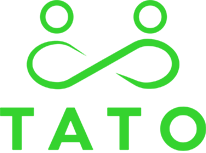
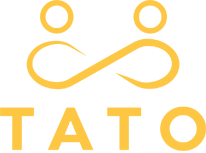
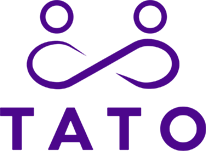
Upcoming Workshops
TA101 - Intro to TA
Menu






This seminar, Pets in the Therapy Space on 22 November, will focus on the often discounted aspect of a child’s (or adult’s) significant attachment relationship
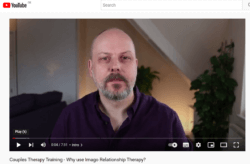
What makes Imago Relationship Therapy a great way of working with couples? This short video from the Imago Relationship Therapy trainer, Ian Tomlinson, explains why

Is it time to re-evaluate how we view health and healthcare in the UK? It seems that the way we view treating health doesn’t appear

What is Imago Relationship Therapy? Imago Relationship Therapy is a model of couples work and relationships. It was developed by Dr. Harville Hendrix and Dr.
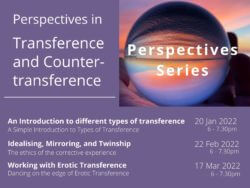
Perspectives in Transference and Counter-transference online seminars A warm welcome to a set of workshops from the TATO. We are delighted to be launching our
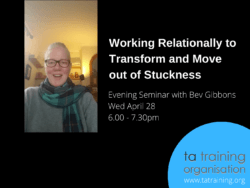
Bev’s Spring Seminar on 28th April is on the subject of ‘working relationally to transform and move out of stuckness’. She will be exploring stuckness
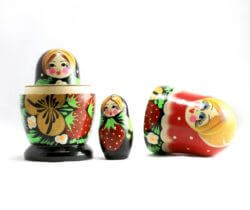
Exploring the concept of Child ego state Nearly a week ago, on 10 March, I presented my winter evening seminar with TATO. My theme was

Waking up to another morning with snow blanketing our part of the world brings to mind this quote from Albert Einstein. In the midst of
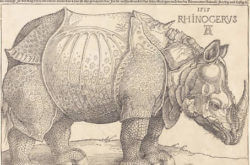
David Brooks is the inspiration for this week’s creativity exploration. Albert Durer (1471 – 1528) had never seen a Rhinoceros and drew this sketch in
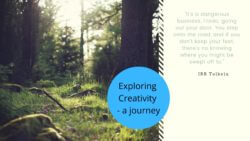
Why creativity? Exploring creativity – both for work with clients and for ourselves – is important to our team. I’m sure you will have noticed